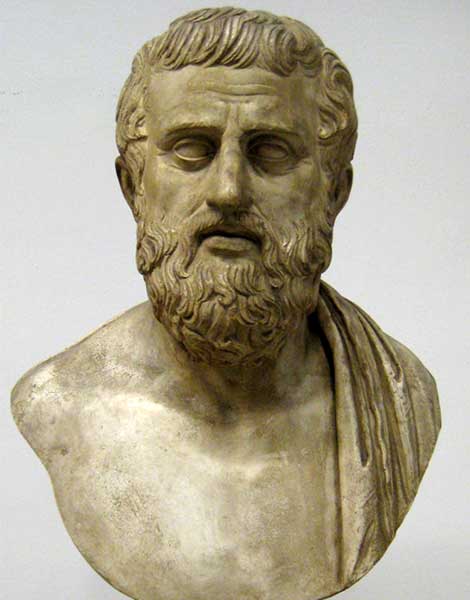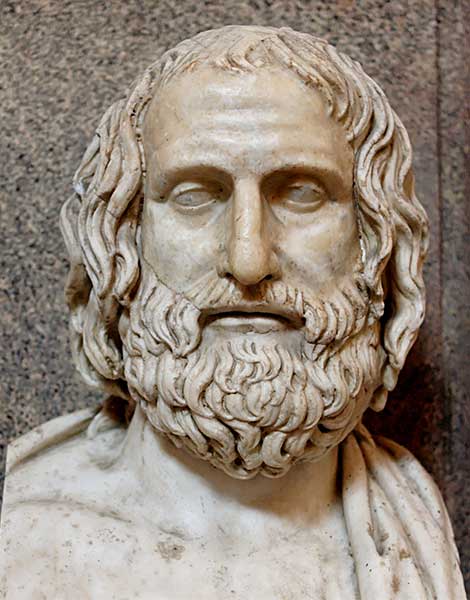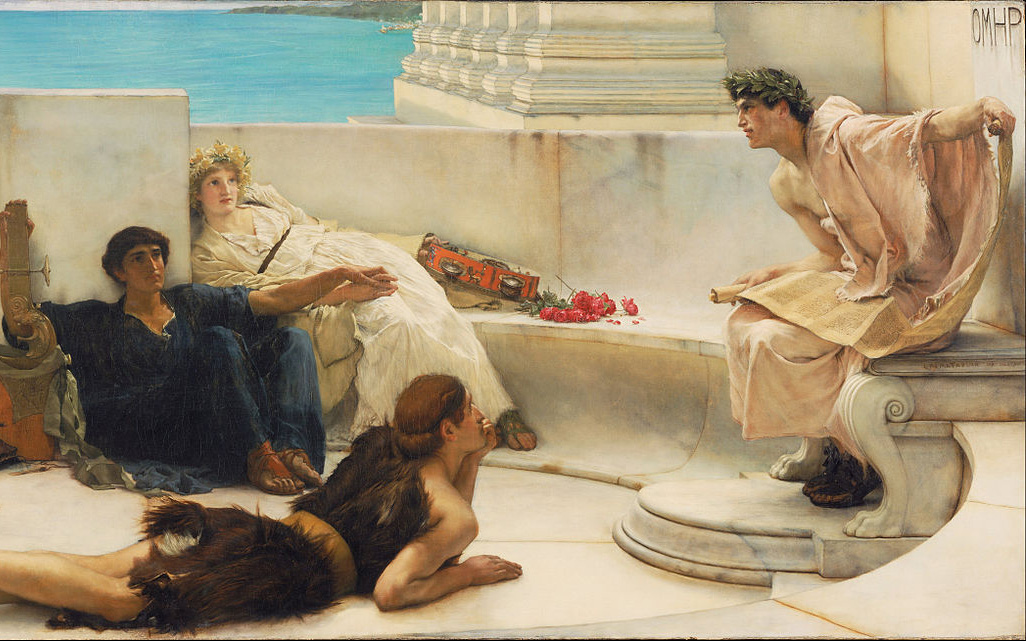Nikos Konstandaras muses on the depth, richness and harmony of the ancient Greek language, and how society will ultimately lose if it is not studied.
The language we speak is the house we inhabit, the map and limits of our world, the vessel for our travels. The language that we do not know, which we learn at a later age, opens up new worlds within us and in space and time. It carries us inwards and onwards on paths we never imagined, into unknown dimensions, into new halls in the mansions of experience, into new worlds charted by those who have traveled its jet streams and alleyways.
The longer a language has lived and carried great thinkers on its back, the greater its potential value to us, the more profound its penetration into what we see and do not see. It lives in the dark space of other languages, it is the rich matter between the planets and stars that we see, stretching the universe as it expands our imagination.
My personal journey has been a life in three languages, a play in many acts, an adventure that marries chance with the inevitable.
I was born to Greek parents in a foreign country. Greek is my mother tongue, the language of acceptance and familiarity, the language of love, the only one I knew till I was 5. In kindergarten the other kids spoke English, I thought they were suffering from some strange illness. We stared at each other in mutual astonishment. I determined to speak their language better than anyone else, learning it as, all together, we learned to read and write. Striving to compensate for my weakness, I discovered a new world, I enlarged my home.
I went to university intending to train as an English teacher. There, by chance, in order to garner an easy credit for my BA, I picked Greek (Ancient) as a first-year subject. I thought that speaking Greek at home would have helped me. The little I knew was useless, my informal knowledge of the modern language serving only to confuse me as I sailed carelessly into the rich and rigorous universe of what in academe is “Greek,” as opposed to “modern Greek.”
In the second year, I was reading Homer, Sophocles and Euripides in the original and thought I would never look back, that I would never return to English literature.
For my master’s dissertation, I mined deep into the meaning of the word and concept philia, which in modern Greek translates as “friendship” but which in antiquity carried a wealth of connotations. It expresses a social convention, an institution a sense of closeness and belonging that binds people in a relationship; their standing may not be equal (as in the case of men and women) but their expectations of each other are.
Many, many years later, as a trainee psychotherapist, I would plunge into the well of knowledge and wisdom encapsulated by the same word to write a paper for a European conference on conflict and reconciliation in groups, couples, families and society.

Marble bust of Sophocles in the Pushkin State Museum of Fine Arts, Moscow.
© user:shakko

Bust of Euripides. Roman marble copy of a 4th century BC Greek original (Museo Pio-Clementino, Rome).
© Marie-Lan Nguyen
Between the two rounds of my studies, I had moved to Greece, where my ancient Greek skills got me a job as a translator for the country’s only English-language daily. The publisher of the Athens News, who knew little English, had a penchant for translations of comments from a paper that still used an archaic form of modern Greek which few people of my generation knew or cared to know. After a year or so I was the paper’s editor, and a couple of years later, was hired by The Associated Press to work in Greece and the broader region.
Thus, 35 years ago, began a career in English-language journalism which, for the past 20 years, has run concurrently with one in Greek. I would not have got far without the combination of my three languages, without the in-depth knowledge of the wealth and discipline of each. Each complements the other to form an unbroken bridge between the past and the present, between myself and my time, in which English is the lingua franca the way Greek was in New Testament times.
Each language gave me the impetus to deepen my knowledge of myself and others, the ability to immerse myself in the past, providing a context for greater understanding of events in my life and the world. It made me more aware as to how people whose languages I did not know might see differently the same things that I saw. I did, after all, spend a lot of time examining a word that is full of meanings and connotations in Ancient Greek which are lacking both in the modern language and in English translation.
I must admit that my meanders are not something to be emulated by those who know where they want to go. Nor can I judge whether Princeton University is right to “decouple” study of the classics from knowledge of Greek and Latin. Perhaps this will attract more students, who will quickly realize that it is both necessary and not that difficult to learn these ancient languages or others. There are, of course, wonderful translations of the great works. But even the best cannot convey the sense of space and time, of convention, expectation and revolution, that words may carry in their original language. Quite often the treasures are hidden.
It is not the language that will lose if it is not studied, it is the society that consciously turns its back on millennia of knowledge which will lose a real Atlantis every day. Sometimes, the vanity and demands of “progress” are enlisted in the cause of regression, while those who cause the damage are proud of themselves. Tragic irony. A Greek concept.
This article was previously published at ekathimerini.com.









